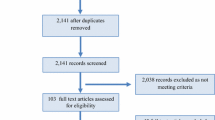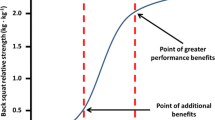Abstract
Trait mindfulness helps people handle distress and improves their satisfaction with life. The aim of the present paper is to examine whether trait mindfulness also promotes positive functioning (i.e., performance) in highly demanding situations, such as in elite sports. Mindfulness has been shown to improve athletes’ ability to perform well, i.e., to increase their performance-delivery. However, researchers are still speculating about the underlying mechanism. The present research examines whether trait mindfulness enhances the ability of elite athletes to trigger performance in demanding situations by generally reducing competition anxiety and diminishing its negative impact when it occurs. Participants were 133 elite athletes from 23 different sports. They completed measures of trait mindfulness, competition anxiety, and performance-delivery. Mediation, moderation, and moderated-mediation effects of mindfulness and competition anxiety on performance-delivery were tested. Our findings indicate that trait mindfulness is related to fewer performance worries and prevents the remaining worries from influencing athletes’ behavior, thereby helping them to perform better. Implications and directions for further research are discussed. Apart from benefits for psychological health, instructing people to become more mindful might be a promising approach to help them optimize their performance in demanding situations.


Similar content being viewed by others
References
Adams, C. E., Cano, M. A., Heppner, W. L., Stewart, D. W., Correa-Fernández, V., Vidrine, J. I., Li, Y., Cinciripini, P. M., Ahluwalia, J. S., & Wetter, D. W. (2015). Testing a moderated mediation model of mindfulness, psychosocial stress, and alcohol use among African American smokers. Mindfulness, 6, 315–325. doi:10.1007/s12671-013-0263-1.
Anderson, N. D., Lau, M. A., Segal, Z. V., & Bishop, S. R. (2007). Mindfulness-based stress reduction and attentional control. Clinical Psychology and Psychotherapy, 14, 449–463. doi:10.1002/cpp.544.
Arch, J. J., & Craske, M. G. (2010). Laboratory stressors in clinically anxious and non-anxious individuals: the moderating role of mindfulness. Behaviour Research and Therapy, 48, 495–505. doi:10.1016/j.brat.2010.02.005.
Baumeister, R. F., & Showers, C. J. (1986). A review of paradoxical performance effects: choking under pressure in sports and mental tests. European Journal of Social Psychology, 16, 361–383. doi:10.1002/ejsp.2420160405.
Bergomi, C., Tschacher, W., & Kupper, Z. (2013). Measuring mindfulness: first steps towards the development of a comprehensive mindfulness scale. Mindfulness, 4, 18–32. doi:10.1007/s12671-012-0102-9.
Bergomi, C., Tschacher, W., & Kupper, Z. (2014). Konstruktion und erste Validierung eines Fragebogens zur umfassenden Erfassung von Achtsamkeit: Das Comprehensive Inventory of Mindfulness Experiences. [Construction and initial validation of a questionnaire for a comprehensive assessment of mindfulness: the comprehensive inventory of mindfulness experiences]. Diagnostica, 60, 111–125. doi:10.1026/0012-1924/a000109.
Berndt, N. C., Hayes, A. F., Verboon, P., Lechner, L., Bolman, C., & De Vries, H. (2013). Self-efficacy mediates the impact of craving on smoking abstinence in low to moderately anxious patients: results of a moderated mediation approach. Psychology of Addictive Behaviors, 27, 113–124. doi:10.1037/a0028737.
Birrer, D., & Morgan, G. (2010). Psychological skills training as a way to enhance an athlete’s performance in high-intensity sports. Scandinavian Journal of Medicine & Science in Sports, 20, 78–87. doi:10.1111/j.1600-0838.2010.01188.x.
Brand, R., Ehrlenspiel, F., & Graf, K. (2009). Wettkampf-Angst-Inventar (WAI). Bonn: Bundesinstitut für Sportwissenschaft.
Creswell, J. D., Way, B. M., Eisenberger, N. I., & Lieberman, M. D. (2007). Neural correlates of dispositional mindfulness during affect labeling. Psychosomatic Medicine, 69, 560–565. doi:10.1097/PSY.0b013e3180f6171f.
Delgado, L. C., Guerra, P., Perakakis, P., Vera, M. N., Reyes del Paso, G., & Vila, J. (2010). Treating chronic worry: psychological and physiological effects of a training programme based on mindfulness. Behaviour Research and Therapy, 48, 873–882. doi:10.1016/j.brat.2010.05.012.
Eysenck, M. W., & Calvo, M. G. (1992). Anxiety and performance: the processing efficiency theory. Cognition & Emotion, 6, 409–434. doi:10.1080/02699939208409696.
Frewen, P., Evans, E., Maraj, N., Dozois, D., & Partridge, K. (2008). Letting go: mindfulness and negative automatic thinking. Cognitive Therapy and Research, 32, 758–774. doi:10.1007/s10608-007-9142-1.
Gardner, F. L., & Moore, Z. E. (2004). A mindfulness-acceptance-commitment-based approach to athletic performance enhancement: theoretical considerations. Behavior Therapy, 35, 707–723. doi:10.1016/S0005-7894(04)80016-9.
Gardner, F. L., & Moore, Z. E. (2007). The psychology of enhancing human performance. The Mindfulness-Acceptance-Commitment Approach (MAC). New York, NY: Springer.
Gardner, F. L., & Moore, Z. E. (2012). Mindfulness and acceptance models in sport psychology: a decade of basic and applied scientific advancements. Canadian Psychology/Psychologie canadienne, 53, 309–318. doi:10.1037/a0030220.
Goldin, P. R., & Gross, J. J. (2010). Effects of mindfulness-based stress reduction (MBSR) on emotion regulation in social anxiety disorder. Emotion, 10, 83–91. doi:10.1037/a0018441.
Gooding, A., & Gardner, F. L. (2009). An empirical investigation on the relationship between mindfulness, pre shot routine, and basketball free throw percentage. Journal of Clinical Sport Psychology, 3, 303–319.
Grossman, P., Niemann, L., Schmidt, S., & Walach, H. (2004). Mindfulness-based stress reduction and health benefits. A meta-analysis. Journal of Psychosomatic Research, 57, 35–43. doi:10.1016/S0022-3999(03)00573-7.
Haberl, P., & Peterson, K. (2006). Olympic-size ethical dilemmas: issues and challenges for sport psychology consultants on the road and at the Olympic games. Ethics & Behavior, 16, 25–40. doi:10.1207/s15327019eb1601_4.
Hardy, L. (1990). A catastrophe model of performance in sport. In G. Jones & L. Hardy (Eds.), Stress and performance in sport (pp. 81–106). Chichester: Wiley.
Hardy, L., Woodman, T., & Carrington, S. (2004). Is self-confidence a bias factor in higher order catastrophe models? An exploratory analysis. Journal of Sport and Exercise Psychology, 2, 359–368.
Hayes, A. F. (2013). Introduction to mediation, moderation, and conditional process analysis: a regression-based approach. New York: Guilford Press.
Hayes, A. F., & Matthes, J. (2009). Computational procedures for probing interactions in OLS and logistic regression: SPSS and SAS implementations. Behavior Research Methods, 41, 924–936. doi:10.3758/BRM.41.3.924.
Hill, D. M., Hanton, S., Matthews, N., & Fleming, S. (2010). Choking in sport: a review. International Review of Sport and Exercise Psychology, 3, 24–39. doi:10.1080/17509840903301199.
Hofmann, S. G., Sawyer, A. T., Witt, A. A., & Oh, D. (2010). The effect of mindfulness-based therapy on anxiety and depression: a meta-analytic review. Journal of Consulting and Clinical Psychology, 78, 169–183. doi:10.1037/a0018555.
Jha, A. P., Stanley, E. A., Kiyonaga, A., Wong, L., & Gelfand, L. (2010). Examining the protective effects of mindfulness training on working memory capacity and affective experience. Emotion, 10, 54–64. doi:10.1037/a0018438.
Kabat-Zinn, J. (2003). Mindfulness-based interventions in context: past, present, and future. Clinical Psychology: Science and Practice, 10, 144–156. doi:10.1093/clipsy.bpg016.
Kaufman, K. A., Glass, C. R., & Arnkoff, D. B. (2009). An evaluation of Mindful Sport Performance Enhancement (MSPE): a new mental training approach to promote flow in athletes. Journal of Clinical Sport Psychology, 4, 334–356.
Keng, S. L., Smoski, M. J., & Robins, C. J. (2011). Effects of mindfulness on psychological health: a review of empirical studies. Clinical Psycholgy Review, 31, 1041–1056. doi:10.1016/j.cpr.2011.04.006.
Martens, R., Burton, D., Vealey, R. S., Bump, L. A., & Smith, D. E. (1990). Development and validation of the Competitive State Anxiety Inventory-2. In R. Martens, R. S. Vealey, & D. Burton (Eds.), Competitive anxiety in sport (pp. 117–190). Champaign, IL: Human Kinetics.
Masters, R., & Maxwell, J. (2008). The theory of reinvestment. International Review of Sport & Exercise Psychology, 1, 160–183. doi:10.1080/17509840802287218.
Morris, L. W., Davis, M. A., & Hutchings, C. H. (1981). Cognitive and emotional components of anxiety: literature review and a revised worry-emotionality scale. Journal of Educational Psychology, 73, 541–555.
Preacher, K. J., & Hayes, A. F. (2008). Asymptotic and resampling strategies for assessing and comparing indirect effects in multiple mediator models. Behavior Research Methods, 40, 879–891. doi:10.3758/BRM.40.3.879.
Preacher, K. J., Rucker, D. D., & Hayes, A. F. (2007). Addressing moderated mediation hypotheses: theory, methods, and prescriptions. Multivariate Behavioral Research, 42, 185–227. doi:10.1080/00273170701341316.
Shapiro, S. L., Brown, K. W., & Biegel, G. M. (2007). Teaching self-care to caregivers: effects of mindfulness-based stress reduction on the mental health of therapists in training. Training and Education in Professional Psychology, 1, 105–115. doi:10.1037/1931-3918.1.2.105.
Smith, R. E., Smoll, F. L., & Schutz, R. W. (1990). Measurement and correlates of sport-specific cognitive and somatic trait anxiety: the sport anxiety scale. Anxiety Research, 2, 263–280. doi:10.1080/08917779008248733.
Swain, A., & Jones, G. (1996). Explaining performance variance: the relative contribution of intensity and direction dimensions of competitive state anxiety. Anxiety, Stress and Coping, 9, 1–18. doi:10.1080/10615809608249389.
Thienot, E., Jackson, B., Dimmock, J., Grove, J. R., Bernier, M., & Fournier, J. F. (2014). Development and preliminary validation of the mindfulness inventory for sport. Psychology of Sport and Exercise, 15, 72–80. doi:10.1016/j.psychsport.2013.10.003.
Thompson, R. W., Kaufman, K. A., De Petrillo, L. A., Glass, C. R., & Arnkoff, D. B. (2011). One year follow-up of mindful sport performance enhancement (MSPE) with archers, golfers, and runners. Journal of Clinical Sport Psychology, 5, 99–116.
Author information
Authors and Affiliations
Corresponding author
Ethics declarations
The research was conducted in accordance with APA ethical guidelines. All participants provided informed consent, and confidentiality and anonymity were assured.
Rights and permissions
About this article
Cite this article
Röthlin, P., Horvath, S., Birrer, D. et al. Mindfulness Promotes the Ability to Deliver Performance in Highly Demanding Situations. Mindfulness 7, 727–733 (2016). https://doi.org/10.1007/s12671-016-0512-1
Published:
Issue Date:
DOI: https://doi.org/10.1007/s12671-016-0512-1




